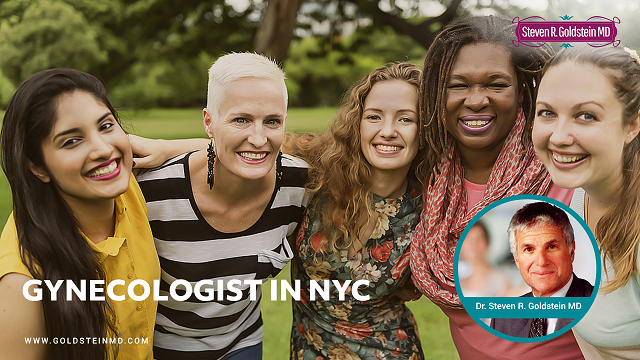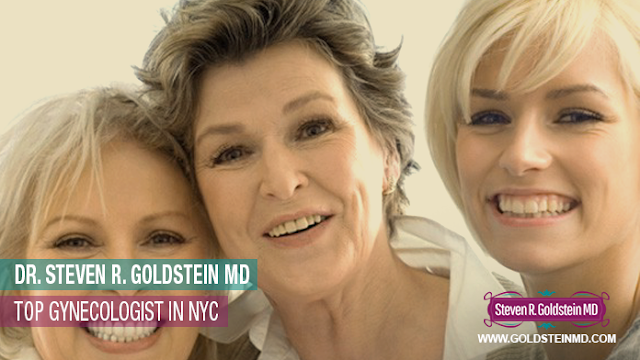Dr. Steven R. Goldstein MD is a Gynecologist in NYC , and Co-Directory of Bone Densitometry and Body Composition, NYU Langone Medical Center. Dr Goldstein is also the President of the International Menopause Society and a Certified Menopause Practitioner. Dr Goldstein has helped thousands of women cope with the symptoms and effects of menopause.
One of the effects of menopause is bone loss due to a lack of estrogen in menopausal women. Calcium is crucial for healthy bone. For years Dr Goldstein has recommended to his patients that they get their calcium from diet. This is because there is some evidence that calcium supplements may be a factor in slightly raising the risk for kidney stones and heart disease. If you are consistently below 1000 to 1200 mg of calcium daily, depending on your age then some calcium supplements may be in order.
The current recommendation is for 1000 mg of elemental calcium for women up to age 50 and 1200 mg for women above age 50.
When taking calcium, please note that no more than 500 mg can be absorbed in less than a 2 hour period. Taking more at the same time is pointless. You will only get 40% of what is on the label. For instance, a 625mg pill of calcium gluconate or oxalate or carbonate – when it dissolves will only yield about 40% (250mg in this case) of elemental calcium.
You should not take Calcium at the same time as an iron supplement. Do note that taking calcium supplements often cause constipation.
Adequate protein in one’s diet is also
crucial. An adult female who weighs 150 pounds should be eating approximately
81 grams of protein per day. Foods that are relatively high in protein include
(believe it or not) peanut butter, for which two tablespoons have 8 grams of
protein; one cup of non-fat milk, 8.8 grams; two medium eggs, 11.4 grams; one
chicken drum stick, 12.2 grams; one-half cup of cottage cheese, 15 grams; and 3
ounces of flounder or turkey, 25 grams.
Many women are aware of menopause, but very few are aware of “sarcopenia”. This is the wasting of muscle that is seen in elderly patients. It can begin as early as age 40. It can become extremely pronounced in women in their 60s. And as women approach their 80’s and beyond, it is increasingly recognized as a major impediment to continued health and well-being. It is a major component of “frailty.”
Sarcopenia and its loss of muscle can be just as devastating to the elderly as loss of bone. Resistive exercises are important. Walking, biking, and cardiovascular machines are good for you but do not build muscle mass. Only resistive exercises and strength training can do so.
Dr. Goldstein, in his role as a gynecologist and helping his patients cope with menopause, uses his skill as an osteoporosis specialist in NYC to help them. He has a particular interest in bone health, preventing osteoporosis, diagnosing bone mass with bone density testing, and talking to his patients about fall prevention and balance exercise.
Dr Goldstein is regarded as one of the world's best gynecologists and a top osteoporosis specialist in NYC. Dr. Goldstein is a Professor of Obstetrics and Gynecology at the New York University School of Medicine.
As a top osteoporosis specialist in NYC, Dr. Steven R. Goldstein MD evaluates his patients’ bone and muscle health, particularly those who are menopausal. He is a Certified Clinical Densitometrist, with the International Society of Clinical Densitometry. If you are menopausal and concerned about your bone and muscle health, schedule an appointment with Dr. Goldstein by visiting his website.




